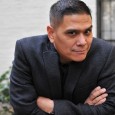I have been thinking about loss. Maybe it’s the pandemic we are going through and the litany of people that have died this past year. Maybe it’s my age.
I came out in 1990 in San Francisco, CA. It was a fun time - but hard, trying to figure out community, sex, school and work in the gay community of the Bay Area. HIV seemed to be everywhere. I was lucky enough to meet some remarkable people as a young queer person of color trying to make it through school on a series of part-time jobs and temporary gigs.
Carmen Vazquez was on the Board of Directors at an organization I worked at when I was 20. She always took time to chat, telling her massive stories and finding the humor in most things. She was tough and did not hide from conflict, but she told me once - after I had been dramatic in a meeting, “stop burning things down, communities work better with bridges and roads.” Sporting her men’s fashion and a smirk, she was a giant in LGBTQ politics, she touched many of our lives. She reminded us to fight for sex, always. Carmen died in January, 2021.
Dr. Joseph Sonnabend also passed in January, 2021. Dr. Sonnabend was a pioneer in HIV treatment. “Joe” to his friends, Dr. Sonnabend was passionate about our lives as people living with HIV. He was forthright in his opinions and worked diligently with HIV advocates to make clinical care and treatment options centered on our needs. He wanted us to see a future with effective treatment, and he was right. I was most surprised at how accessible he remained, even after retirement. He would happily talk about HIV science, treatment and history with young activists and scholars. But he was like that - open and encouraging people’s critical thinking on HIV.
These two hit us at the start of 2021, after a year of so much death. I had worked with Deloris Dockrey, Larry Kramer, Mona Foot, Ed Shaw, Lorena Borjas, Ron Simmons : they were all giants in my HIV and LGBTQ communities, and they were just a few of the hundreds of thousands of deaths in the past year. Unfortunately, we are a people accustomed to loss.
We carry with us people we know and people we don’t. Sometimes we see them in pictures, like on the AIDS Memorial InstaGram or in old gay and lesbian catalogs or pornography. Sometimes they were people we saw in bars or coffee shops or community centers or cruising sites who eventually disappeared. A few loomed large and were recorded in the media. But the vast majority of our community - dead from HIV, suicide, violence, cancer, Covid19, overdose, lack of appropriate health care, accidents, etc. - are remembered through individuals and families, if they are lucky. But our absences also leave a mark. I collaborated with Catron Booker on "The Presence of Absences" to look at this space.
For those of us living with HIV and other kinds of precarity, the experience of grief is different. In The Calendar of Loss: Race, Sexuality, and Mourning in the Early Era of AIDS, Dagmawi Woubshet describes it as “a life where death is not a singular lost object, but instead is ever present, and where the mourner is also dying.” We say goodbye over and over again, knowing one day people will say it to us. In his speech at the 1992 OutWrite Conference, Melvin Dixon tells us he “will be somewhere listening for my name” even as he sees the end of his life before him. Melvin’s novels (Trouble the Water, Vanishing Rooms), essays (The Melvin Dixon Reader) and poems (Change of Territory, Love’s Instruments) are remarkable - and I encourage you to find them.
Yes, Melvin Dixon, I am calling your name.
This is one fear: that people will not remember us, our work, our dreams, loves and heartbreaks. Does it matter if no one remembers?
Our communities need to work and invest in history, but an activist one not just a passive memorial. I wish more funders understood the importance of knowing our history and connecting with each other. We can use this public memory:
- as a way of celebrating the lives and works of those who came before us;
- as a way of helping build a future where people do not suffer as we did from homophobia, racism, transphobia, sexism, ableism, classism and the stigmas against HIV, drug use and sex work;
- as a way of emboldening our visions and actions towards that better, more inclusive world;
- as a way of acknowledging that the HIV epidemic is 40 years old and there will be thousands more diagnosed this year because the world did not change enough.
I had a hard time writing this. This immense loss in my life - I have only been able to share it with others who were there, mostly people in the HIV and LGBTQ communities. We have a sardonic view of the world and death and government. We do not expect anyone to save us - not the police, not the government, not the doctors, not even our families - because they didn’t or couldn’t. Our jokes can be uncomfortable for people. When I am around others, I try to conceal it, as if the mourning would provoke disgust.
But 2020 taught us to celebrate when we can, and that includes the ceremonies at the end of that life. 2021 started with the loss of Carmen and Joe in my community, and in my own family with an aunt and uncle dying. Goodbye. I remember you.








2 Comments
2 Comments